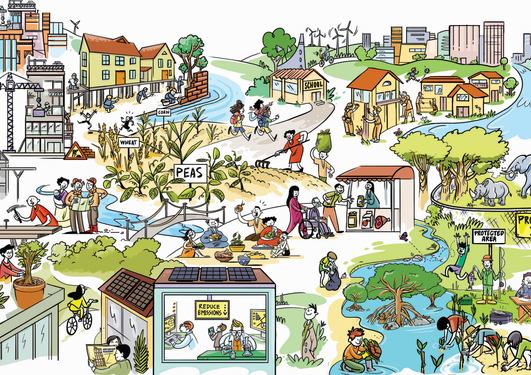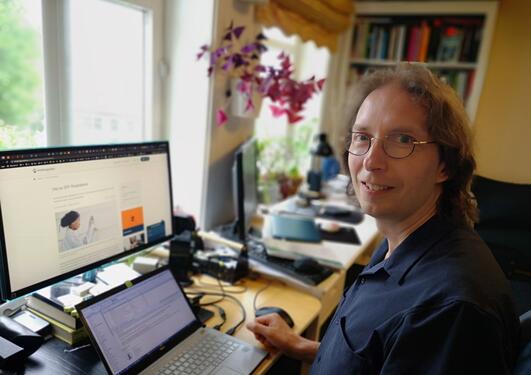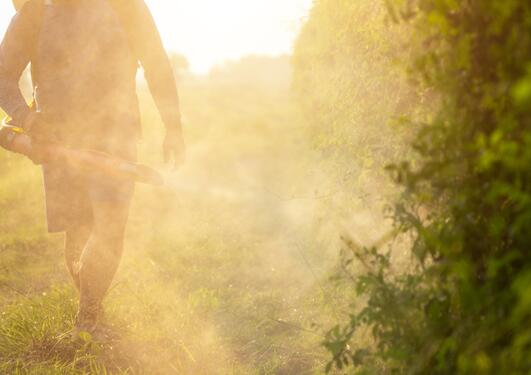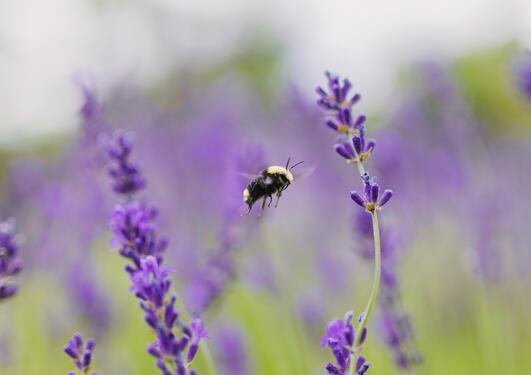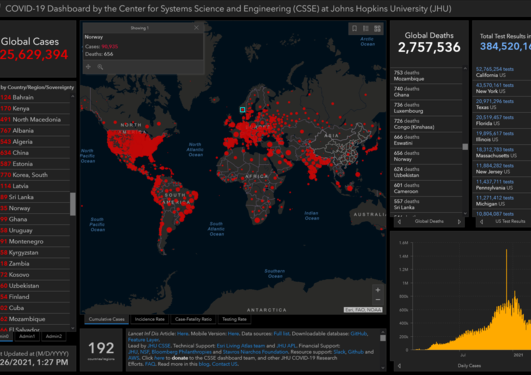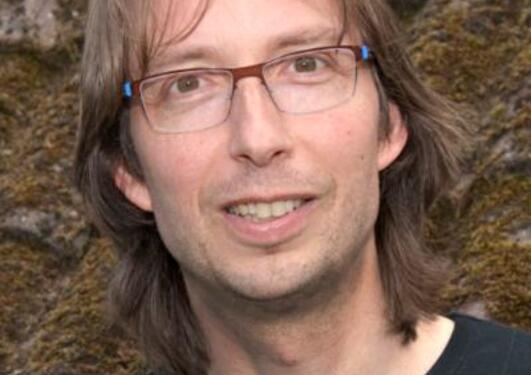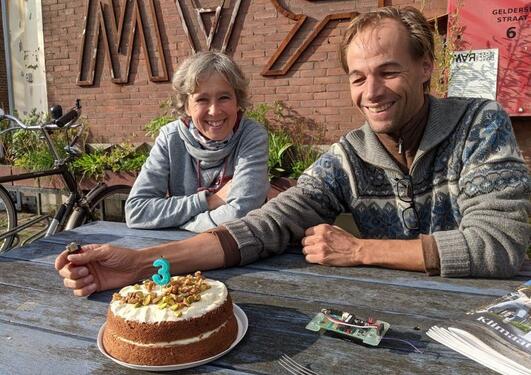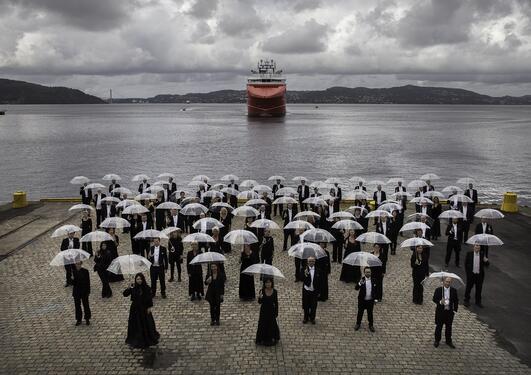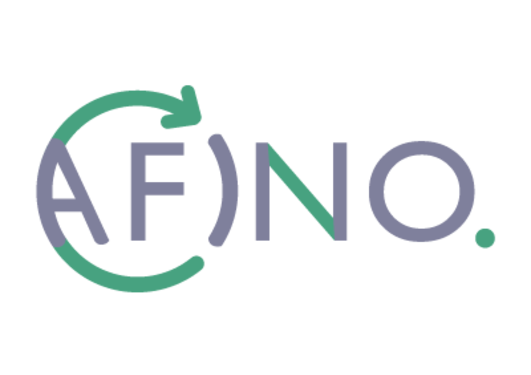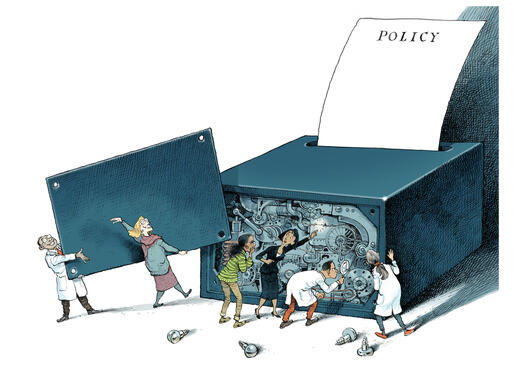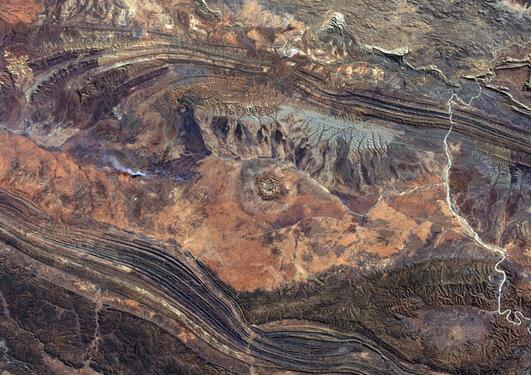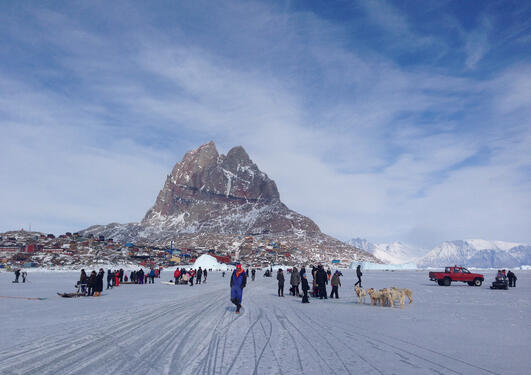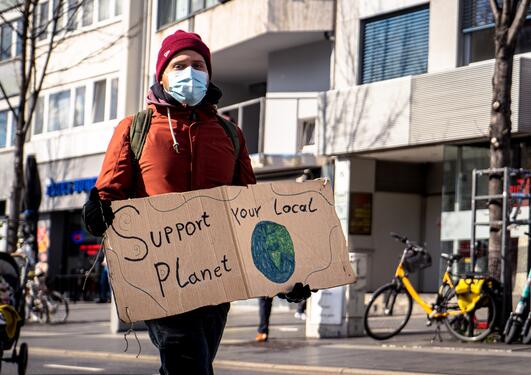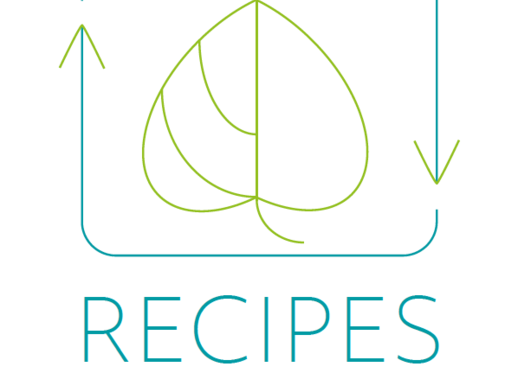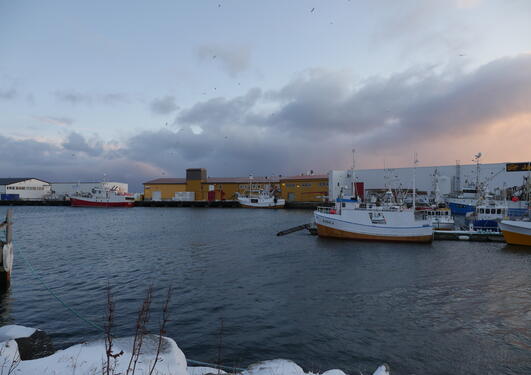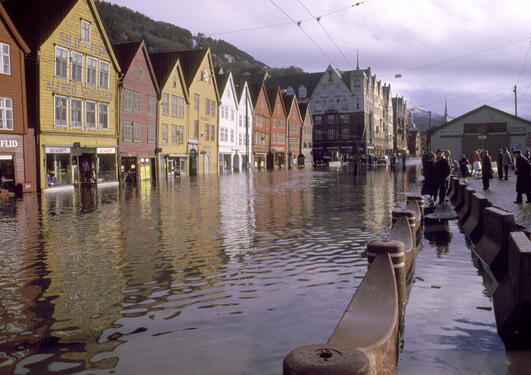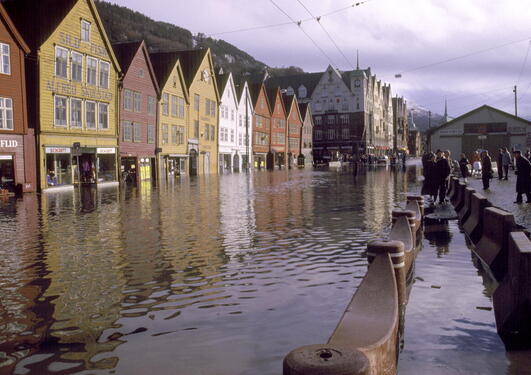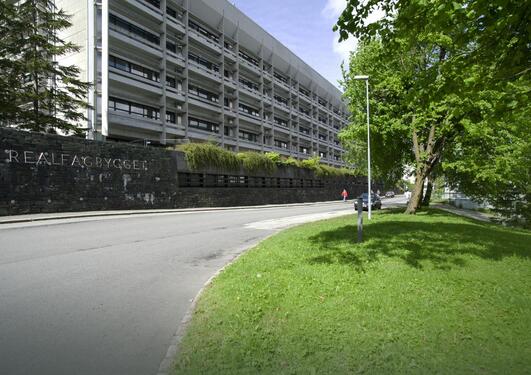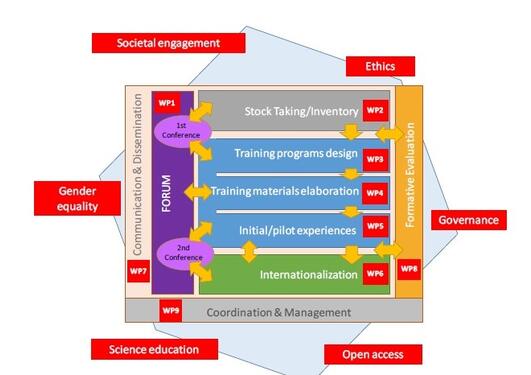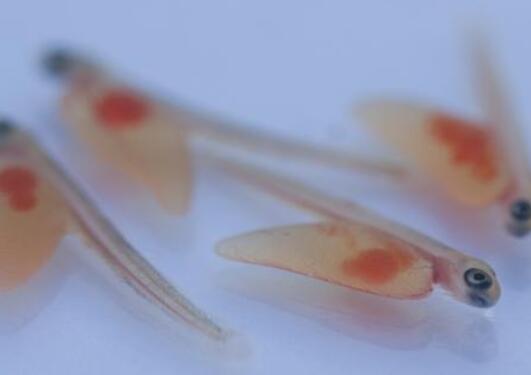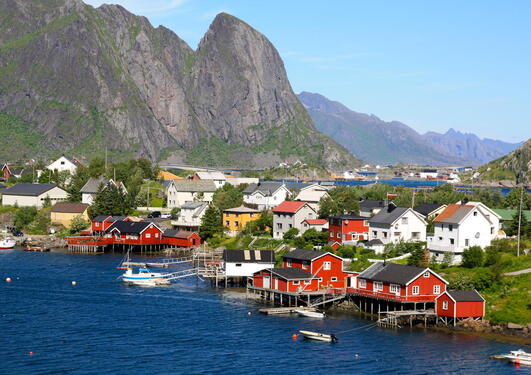Jeroen P. van der Sluijs
- E-mailjeroen.sluijs@uib.no
- Phone+47 55 58 27 95
- Visitor AddressParkveien 95007 BergenRoom205, 2nd floor
- Postal AddressPostboks 78035020 Bergen
In addition to my position as professor at the Centre for the Study of the Sciences and the Humanities (SVT) at UiB, I am guest researcher at Utrecht University, The Netherlands and visiting professor at Coöperatieve Universiteit Amersfoort (a citizen science initiative).
- Public lecture: Urgent decisions in uncertain times, the case of global insect decline. Collaboration with the Bergen Society for the Advancement of Science (Selskapet til Vitenskapenes Fremme). See PowerPoint slides here. 10.05.23
- Op-ed in Norwegian daily Stavanger Aftenblad with Anne Jorunn Frøyen, PhD and authorized conservator at Jærmuseet: Heller føre var enn etter snar - bruk ikkje gift mot løvetann! (Better safe than sorry - don't use poison against the daffodil!) 12.04.23
- Interviewed about bee decline in the film The Bee Battle by Norwegian film production company Tempo Film (Norwegian audio with English subs) 20.03.2023
- Interview in Forskningspolitikk ("Research Policy" - an open and independent Norwegian magazine for analysis and debate on research and innovation): Å kuratere kunnskap for ei ny tid (Curating knowledge for a new age) - 13.06.22
- Op-ed in forskning.no (website for Norwegian and international research news): Forskere må ta ansvar for å stanse den globale biedøden (Researchers must assume responsibility for halting the global bee decline - based on the following article) - 27.10.21.
- -> Response to the op-ed: Må forskere ta ansvar for å stanse biedøden? (Must researchers assume responsibility to halt the bee decline?) Anders Nielsen, 09.11.21
- Online open course in Knowledge Quality Assessment (hint: click the blue [+] in front of each main lesson to see sub-lessons)
- How can we make good decisions when experts lack the answers? (uib.no, 17.04.2020)
- EU Ban on Neonics: Too Little, Too Late (invited opinion article in Green European Journal, 19.12.2018)
- Interview in Morgenbladet on Post Normal Science: Fakta, faen (in Norwegian) (23.09.2016)
- Putting scientific facts under the magnifying glass (uib.no, 21.06.2016)
- Pollinators and Global Food Security: the Need for Holistic Global Stewardship (Food Ethics, 09.05.2016)
- Professor van der Sluijs number 25 on top 100 list (article in Dutch) (13.10.2015)
- We live in times of science on demand: an interview with Jeroen van der Sluijs (originally published in the Dutch Milieudefensie (Friends of the Earth) magazine, June 2014)
- Uncertainty and Dissent in Climate Risk Assessment: A Post-Normal Perspective (Nature and Culture, 2012)
- Room for climate debate: Perspectives on the interaction between climate politics, science and the media (Rathenau Institutt, 2010)
Coordinator of the PhD course “Theory of Science and Ethics” for all PhDs in the Fac. of Mathematics & Natural Science, University of Bergen:
MNF990 Theory of Science and Ethics (formerly known as MNF490!)
Here is the schedule for the fall 2023 semester.
Selected publications:
In 2020, I guest-edited a special issue of Current Opinion in Insect Science on 'Pollinator decline: human and policy dimensions', and a special issue of Frontiers of Climate on 'What is high quality knowledge for climate adaptation?'. I am (co-)author of a 4-page comment in Nature (2020: Five ways to ensure that models serve society: a manifesto, 73x cited Google Scholar; Altmetric: 1323) and 4 correspondences in Science (2018: Call to restrict neonicotinoids 27x cited Google Scholar: Altmetric: 700; 2011: Science-Policy Interface: Beyond Assessments, 80x cited Google Scholar; Altmetric: 28) and Nature (2014: Biodiversity reports need author rules, 11x cited, Altmetric: 45; 2016: Climate costing is politics, not science 10x cited, Altmetric: 30). Several of my key-papers have been translated into Japanese (11), Chinese (3) and French (4).
- Drivdal L & Van der Sluijs, JP (2021) Pollinator conservation requires a stronger and broader application of the precautionary principle. Current opinion in insect science.
- Van der Sluijs, JP (2020) Insect decline, an emerging global environmental risk. Current Opinion in Environmental Sustainability. Altmetric: 130. One of highest-scoring outputs from this source (#5 of 680)
- Saltelli A, Benini L, Funtowicz S, Giampietro M, Kaiser M, Reinert E, van der Sluijs JP (2020) The technique is never neutral. How methodological choices condition the generation of narratives for sustainability. Environmental Science & Policy, 106, 87-98 [4x cited ISI; 8x Google Scholar] Altmetric:45
- Bremer S, Wardekker A, Dessai S, Sobolowski S, Slaattelid R, van der Sluijs JP (2019) Toward a multi-faceted conception of co-production of climate services. Climate Services doi: 10.1016/j.cliser.2019.01.003. [20x cited ISI; 39x Google Scholar] Altmetric:23
- Maxim L & van der Sluijs JP (2018) Quality of epidemiological studies: Procedural rules for uncertain science for policy. Environmental Science & Policy 84: 80–87. [2x cited ISI; 2x Google Scholar] Altmetric:3
- van der Sluijs JP et al. (30 authors) (2015) Conclusions of the Worldwide Integrated Assessment on the risks of neonicotinoids and fipronil to biodiversity and ecosystem functioning, Environmental Science and Pollution Research 22 (1) 148-154. [135x cited ISI; 230x cited Google Scholar] Altmetric: 74
- Chagnon M, Kreutzweiser D, Mitchell EAD, Morrissey CA, Noome DA, van der Sluijs JP (2015) Risks of large scale use of systemic insecticides to ecosystem functioning and services, Environmental Science and Pollution Research 22 (1) 119-134. [160x cited ISI Highly Cited Paper; 292x Google Scholar] Altmetric:110
- van der Sluijs JP, Delso NS, Goulson D, Maxim L, Bonmatin JM, Belzunces LP (2013) Neonicotinoids, bee disorders and the sustainability of pollinator services, Current Opinion in Environmental Sustainability 5: 293-305. [213x cited ISI Highly Cited Paper; 379x cited Google Scholar] Altmetric:140
- van Dijk TC, van Staalduinen MA, van der Sluijs JP (2013) Macro-invertebrate decline in surface water polluted with imidacloprid. PLOS ONE, 8(5): e62374. doi:10.1371/journal.pone.0062374 [179x cited ISI; 290x cited Google Scholar] Altmetric:213; Covered in international media, the Guardian, Le Monde
- Petersen AC, Cath A, Hage M, Kunseler E, & van der Sluijs JP (2011) Post-Normal Science in Practice at the Netherlands Environmental Assessment Agency. Science Technology & Human Values, 36 (3) 362-388 [53x cited ISI; 121x Google Scholar] Altmetric:3
- Maxim L & van der Sluijs JP (2011) Quality in environmental science for policy: Assessing uncertainty as a component of policy analysis. Environmental Science & Policy 14:482-492. [59x cited ISI; 127x Google Scholar]
Overview of publications in Cristin:
- (2023). Urgent decisions in uncertain times with Jeroen van der Sluijs.
- (2023). Unpacking the modeling process for energy policy making. Risk Analysis.
- (2023). Impact assessment culture in the European Union. Time for something new? Environmental Science and Policy. 99-111.
- (2022). Recognising the social functions of climate services in Bergen, Norway. Climate Services. 15 pages.
- (2022). High-Quality Knowledge for Climate Adaptation: Revisiting Criteria of Credibility, Legitimacy, Salience, and Usability. Frontiers Media S.A..
- (2022). Editorial: High-Quality Knowledge for Climate Adaptation: Revisiting Criteria of Credibility, Legitimacy, Salience, and Usability. Frontiers in Climate.
- (2021). WP2 Case study: Neonicotinoid insecticides. .
- (2021). Quality Assessment in Co-developing Climate Services in Norway and the Netherlands. Frontiers in Climate. 1-15.
- (2021). Pollinator conservation requires a stronger and broader application of the precautionary principle. Current Opinion in Insect Science. 95-105.
- (2021). Halting the pollinator crisis requires entomologists to step up and assume their societal responsibilities. Current Opinion in Insect Science. vi-xiii.
- (2020). The technique is never neutral. How methodological choices condition the generation of narratives for sustainability. Environmental Science and Policy. 87-98.
- (2020). Post-normal pandemics: Why COVID-19 requires a new approach to science. Blog of ESRC STEPS (Social, Technological and Environmental Pathways to Sustainability) Centre.
- (2020). Pandemie post-normali. Perché CoViD-19 richiede un nuovo approccio alla scienza. Recenti Progressi in Medicina. 202-204.
- (2020). Insect decline, an emerging global environmental risk. Current Opinion in Environmental Sustainability. 39-42.
- (2020). Five ways to ensure that models serve society: a manifesto, . Nature. 482-484.
- (2019). Toward a multi-faceted conception of co-production of climate services. Climate Services. 42-50.
- (2019). Silver as a Constraint for a Large-Scale Development of Solar Photovoltaics? Scenario-Making to the Year 2050 Supported by Expert Engagement and Global Sensitivity Analysis. Frontiers in Energy Research.
- (2019). Initial Guidance Framework for Knowledge Quality Assessment in CoCliServ (CoCliServ D5.1). .
- (2018). ‘Bayer zette wetenschap jarenlang op dwaalspoor’.
- (2018). Ze zijn net als de tabaksindustrie.
- (2018). We beschermen onze gewassen tegen insecten. Maar wie beschermt de insecten tegen ons?
- (2018). Unraveling Controversy on Vexed Environmental Risks.
- (2018). Uncertainties and Quality Assurance in Research.
- (2018). The role of convenience pesticides in the collapse of the entomofauna.
- (2018). Stop de mallemolen van pesticiden. One World.
- (2018). Responsible Research and Innovation (RRI).
- (2018). Responsible Research and Innovation (RRI).
- (2018). Responsible Evidence Appraisal.
- (2018). Research Integrity in Norway (RINO).
- (2018). Quality of epidemiological studies: Procedural rules for uncertain science for policy, a case study on bisphenol-A. Environmental Science and Policy. 80-87.
- (2018). Post-Normal Science & Controversy Studies.
- (2018). NEONICS - Hoe lobby en framing gemakslandbouwgif buiten beeld hielden. De Helling (journal of the scientific office of the Netherlands Green Left party). 49-56.
- (2018). Maintaining Scientific Integrity in Present Day Academic Reality.
- (2018). Liaisons troubles entre recherche publique et agrochimie.
- (2018). Knowledge Quality Assessment in model based scientific assessment.
- (2018). Knowledge Quality Assessment.
- (2018). Integrated Assessment Modeling and the Participatory Challenge: The Case of Climate Change. 32 pages.
- (2018). Higher Education Institutions & responsible research and Innovation (HEIRRI).
- (2018). Gevaarlijke stoffen in een circulaire economie. .
- (2018). From bee health to insectageddon: the battle over problem frames seen through a post-normal science lens.
- (2018). EU agrees total ban on bee-harming pesticides.
- (2018). EU Ban on Neonics: Too Little, Too Late. Green European Journal.
- (2018). Doet Europa bijengif in de ban?
- (2018). Dealing with uncertainty in model-based assessment: the NUSAP approach.
- (2018). Dealing with scientific uncertainty at the science-policy interface.
- (2018). Co-development of place-based climate services for action (CoCliServ).
- (2018). Call to restrict neonicotinoids. Science. 973-793.
- (2017). The NUSAP approach to uncertainty appraisal and communication. 301-310. In:
- (2017). Routledge handbook of Ecological Economics. Nature and society. Routledge.
- (2017). Post-normal science in practice. Futures: The journal of policy, planning and futures studies. 1-4.
- (2017). Analyser la qualite de l'evaluation des risques: L'exemple des perturbateurs endocriniens. Natures sciences sociétés. S72-S75.
- (2017). An update of the Worldwide Integrated Assessment (WIA) on systemic insecticides. Part 2: impacts on organisms and ecosystems. Environmental Science and Pollution Research. 11749-11797.
- (2017). A critical assessment of knowledge quality for climate adaptation in Sylhet Division, Bangladesh. Climate Risk Management. 43-58.
- (2016). Screening regional management options for their impact on climate resilience: an approach and case study in the Venen-Vechtstreek wetlands in the Netherlands. SpringerPlus. 1-17.
- (2016). Science on the verge. Consortium for Science, Policy & Outcomes.
- (2016). Pollinators and Global Food Security: the Need for Holistic Global Stewardship. Food Ethics.
- (2016). Numbers running wild. 151-187. In:
- (2016). Science on the verge. Consortium for Science, Policy & Outcomes.
- (2016). Modelling: Climate costing is politics not science. Nature. 177-177.
- (2015). Systemic insecticides (neonicotinoids and fipronil): trends, uses, mode of action and metabolites. Environmental Science and Pollution Research. 5-34.
- (2015). Risks of large-scale use of systemic insecticides to ecosystem functioning and services. Environmental Science and Pollution Research. 119-134.
- (2015). Effects of neonicotinoids and fipronil on non-target invertebrates. Environmental Science and Pollution Research. 68-102.
- (2015). Dealing with uncertainties in fresh water supply: experiences in the Netherlands. Water resources management. 703-725.
- (2015). Critical appraisal of assumptions in chains of model calculations used to project local climate impacts for adaptation decision support-the case of Baakse Beek. Environmental Research Letters.
- (2014). Wrapping up: The future of Post Normal Science.
- (2014). Uncertainty of population risk estimates for pathogens based on QMRA or epidemiology: a case study of Campylobacter in the Netherlands. Risk Analysis. 847-864.
- (2014). Tools for Post Normal Science.
- (2014). Tools for Knowledge Quality Assessment.
- (2014). The risks of neonicotinoids to aquatic ecosystems.
- (2014). The future social robustness of smart electricity networks in Europe. .
- (2014). Strategies on dealing with uncertainties in urban climate change adaptation.
- (2014). Social robustness of smart electricity networks in Europe.
- (2014). SCRUTINISE DISCORD.
- (2014). Qualichem in vivo: A tool for assessing the quality of in vivo studies and its application for Bisphenol A. PLOS ONE. 16 pages.
- (2014). Post Normal Science: A reflective approach to Knowledge Quality Assessment.
- (2014). Post Normal Science and Knowledge Quality Assessment.
- (2014). Post Normal Science - theory and practice.
- (2014). Neonicotinoids: risks to pollinators, ecosystems and humans.
- (2014). Knowledge Quality Assessment - an introduction.
- (2014). Ingredients for a socially robust smart electricity grid.
- (2014). Decades of climate research: Lessons for science.
- (2014). Dealing with uncertainty in climate adaptation decision-making. 17-40. In:
- (2014). Adapting to an Uncertain Climate – Lessons from Practice. Springer.
- (2014). Critical reflection on assumptions: the NUSAP approach.
- (2014). Conclusions of the Worldwide Integrated Assessment on the risks of neonicotinoids and fipronil to biodiversity and ecosystem functioning. Environmental Science and Pollution Research. 148-154.
- (2014). Climate change and health in the Netherlands. 96-102. In:
- (2014). Adapting to an Uncertain Climate – Lessons from Practice. Springer.
- (2014). Briefadvies Risicocommunicatie op een nieuwe leest schoeien. .
- (2014). Biodiversity reports need author rules. Nature. 170-170.
- (2014). Bijensterfte Oorzaken, gevolgen oplossingen.
- (2014). Bijen en insecticiden: late lessen uit vroege waarschuwingen. Milieu Dossier. 37-41.
- (2014). Advisory letter The health risks of Bisphenol A analogues. .
- (2014). Adaptation to uncertain future climate change.
- (2013). What do i make of your latinorum? Sensitivity auditing of mathematical modelling. International Journal of Foresight and Innovation Policy. 213-234.
More information in national current research information system (CRIStin)
I have long-standing experience in various leading roles in transdisciplinary international research projects, including 13 different EU projects funded under FP5, FP6, FP7 and H2020.
Current projects:
PI of Utrecht University team in SeMPER-Arctic: SeMPER-Arctic - Sense Making, Place attachment, and Extended networks as sources of Resilience in the Arctic (The Belmont Forum) [2020-2024]
Finalized projects:
PI of BeeCaution Bees pesticides and precaution: building an epistemic network in Norway (The Research Council of Norway) [2020-2022]
PI of Bergen team in RECIPES REconciling sCience, Innovation and Precaution through the Engagement of Stakeholders (H2020 Swafs) [2019-2021]
PI of Bergen team in CoCliServ Co-development of place-based climate services for action (JPI Climate ERA 4CS) [2017-2020] (Spin-off of UC4A!)
Go Figure: Visualizing Climate Change (FIGO) (SAMKUL Researcher Network)
Partner in PARENT, Participatory platform for sustainable energy management (EU JPI Urban Europe) [March 2016 - February 2019]
Mainstreaming Sensitivity Analysis and Uncertainty Auditing (Peder Sather Grant) [July 2017 - June 2018] (with Philip Stark, UC Berkeley; Andrea Saltelli UiB and Leif Hellevik, NTNU)
HEIRRI Higher Education Institutions & Responsible Research and Innovation (H2020) [2015-2018]
PI of UC4A [Understanding Cultural Conditions for Climate Change Adaptation] (SAMKUL Researcher Network, Norwegian Research Council) [2015-2016]
ELSA of SALMOSTERILE (The Research Council of Norway) [2013-2018]
EPINET (FP7) [2012-2015]
Scientific coordinator on the IUCN international Task Force on Systemic Pesticides (Triodos Foundation) [2011-2013]
2018 & 2015: Ranked #45 (2018) and #25 (2015) in “The Sustainable 100”, top 100 of most influential Netherland people contributing to sustainable development, by daily newspaper Trouw.
2013: Nominated for Utrecht University Publi Award - in top 3 of scientists with best media coverage (TV, Radio & Daily newspapers) of Utrecht University.
1996: YSSP Fellow ( Young Scientists Summer Program); International Institute for Applied Systems Analysis (IIASA), Laxenburg

